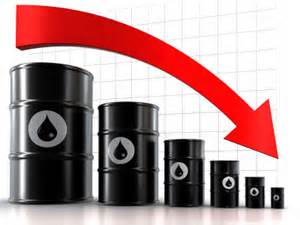The drop in oil prices is good news for China, but poses some questions relating to gas policy.
By the second week of December 2014, international prices for crude oil had fallen to just above US$ 60 per barrel, 40% down from their levels of just six months previously. This is still above the short-term low of US$ 45 per barrel reached in February 2009 during the global financial crises and much higher in real terms than the very low prices of around US$ 20 per barrel that persisted between 1986 and 1999. In the short-term, those countries which import large quantities of oil should gain, as their balance of payments improves and foreign exchange reserves grow. Low oil prices should support industrial output and economic growth and constrain inflation.
China is no exception to these generalisations as it imports nearly 60% of its annual oil requirements. If oil prices remain at this level, its import bill for crude oil will fall by several tens of billions of US dollars in 2015. Falling crude oil prices are driving down the prices for imported liquefied natural gas (LNG). In addition, international prices for coal are also at their lowest level since 2009. As a net importer of all these energy products, China is set to gain on multiple fronts: trade balance, foreign exchange reserves, economic growth, manufacturing and agricultural costs, and inflation control.
Within the energy sector, the outlook is more nuanced. Cheap supplies of crude oil will allow the country to continue building up its strategic oil stocks, should it wish to. However, the profits that its national oil companies (NOCs) make from crude oil production will be reduced because domestic crude oil prices are directly linked to international levels. In principle, lower crude oil prices should help the refining sector, but the government has been lowering oil product prices in line with falling crude oil prices. Also, the refiners now have to sell at a low price product refined from crude oil that was purchased some time ago when prices were higher. At the pump, the price of gasoline and diesel to retail consumers has changed little, as the government has raised the tax on these products in order to constrain consumption.
The implication of low oil prices for China’s natural gas sector is much less clear. Falling LNG prices should bring benefits to the NOCs which have been losing money on imports over the last few years. However, they are suffering from overcapacity in their import terminals and in contracted flows, and Sinopec is trying to sell off contracted supplies. This overcapacity results from a combination of low rates of economic growth and regulated domestic prices for gas which do not reflect changes in international markets.
The government faces a dilemma as it seeks to balance its economic and environmental goals. In order to achieve its long-term goal of substantially boosting the share of gas in the national energy mix it needs to encourage both the use of gas and investment in the extraction of gas. The current low levels of prices for oil and coal relative to those for gas deter users in both the industrial and transport sectors from switching to gas. Already, a large number of inland gas liquefaction plants have suspended production. On the other hand, any move by government to lower natural gas prices will reduce the incentives for its NOCs and other companies to accelerate the search for shale gas and other form of natural gas. Judging from the past, the government may choose to lower prices for natural gas and yet still oblige the NOCs to bear the financial losses from their exploration and production activities.
The low level of oil prices should not have any effect on China’s drive to boost renewable energy in the power sector because almost no oil is used in power generation today and because a combination of subsidies and despatch obligations supports renewables. However, it is possible that a substantial reduction in natural gas prices could revive the languishing gas-to-power industry at the expense of coal.
Returning to the NOCs again, how they will behave if oil prices stay low is quite uncertain. This uncertainty arises from their mix of state and commercial objectives. At home, they will probably have to absorb short-term financial losses at their refineries and from selling on some contracted LNG imports. If the government reduces prices for natural gas, it could force the NOCs to continue spending heavily on shale gas exploration rather than cut back on expenditure.
In their overseas ventures, the NOCs face two sets of incentives. Asset prices are falling as international oil companies cut back on expenditure and try to raise capital. After the financial crisis in 2008, China’s NOCs took advantage of such a situation by spending tens of billions of US dollars on acquiring new assets, notably in the Americas. However, the current government appears to be keen for all state-owned enterprises to focus on profits and to improve capital management, and the NOCs continue to be targets for the anti-corruption drive. As a result, one might expect some selective overseas acquisitions but not a massive round of spending.
To conclude, whilst low international oil prices will bring some obvious macro-economic benefits to China, the consequences for the energy sector are less certain, not least because a great deal depends on a number of decisions yet to be made by the government.


